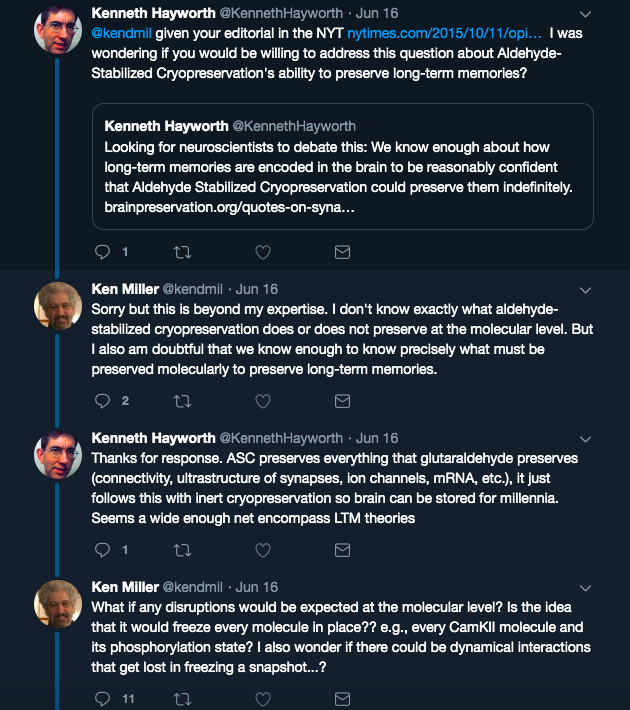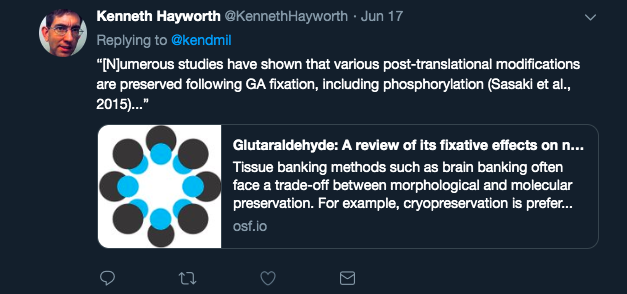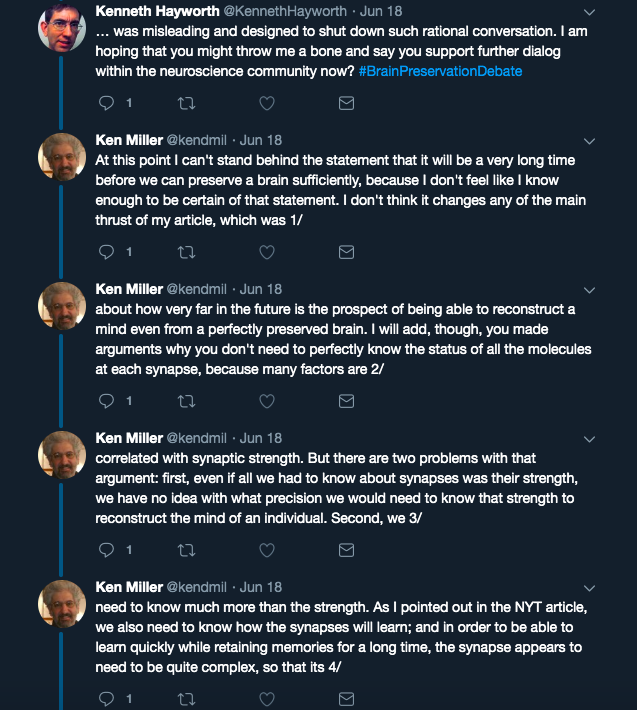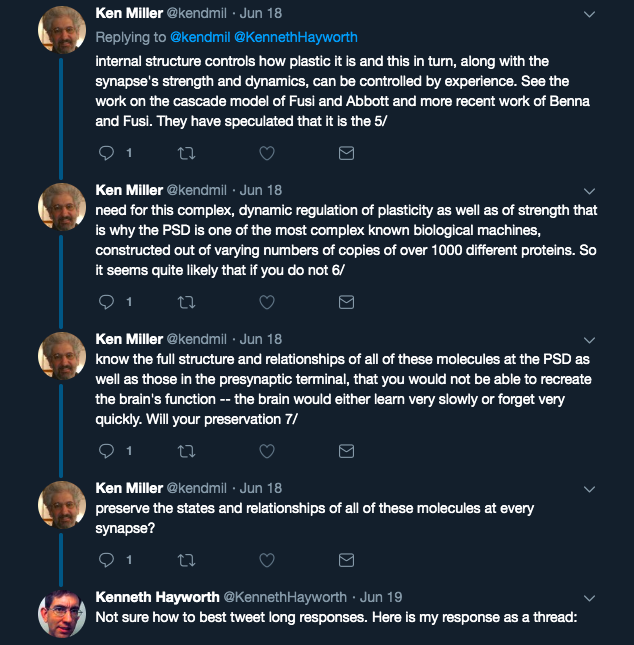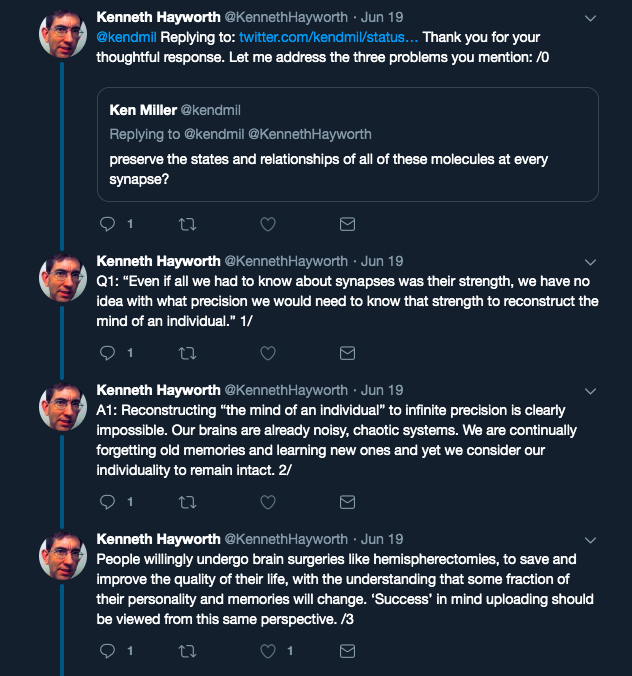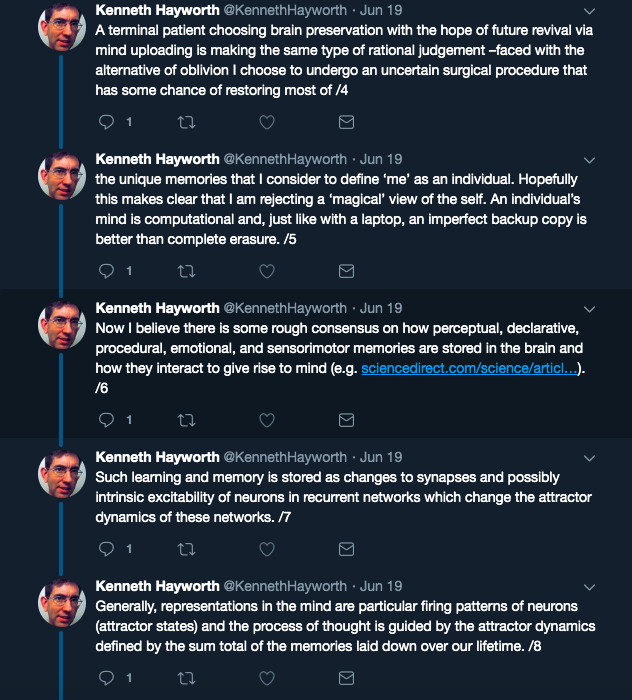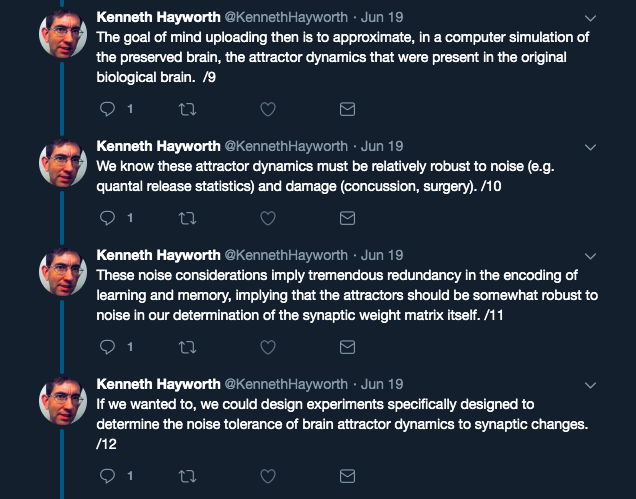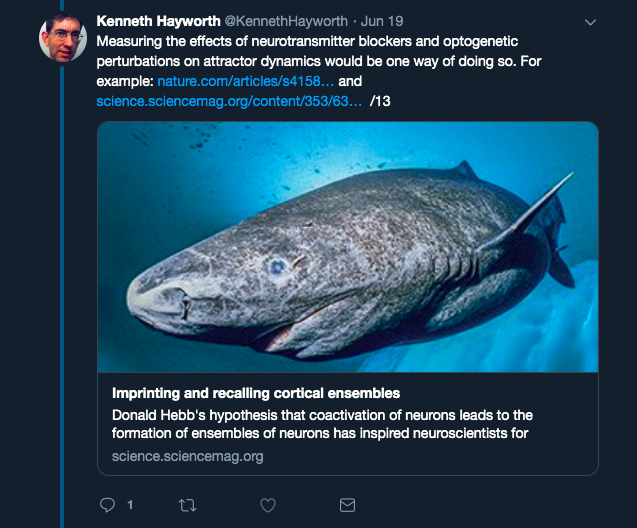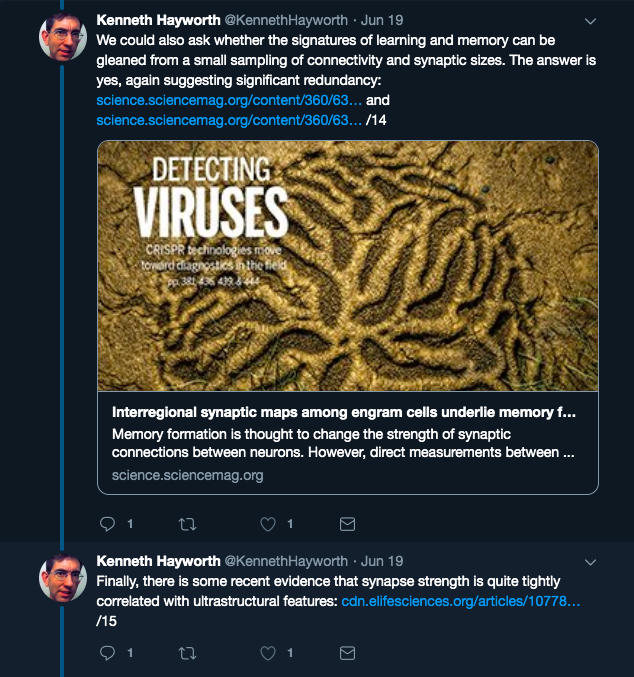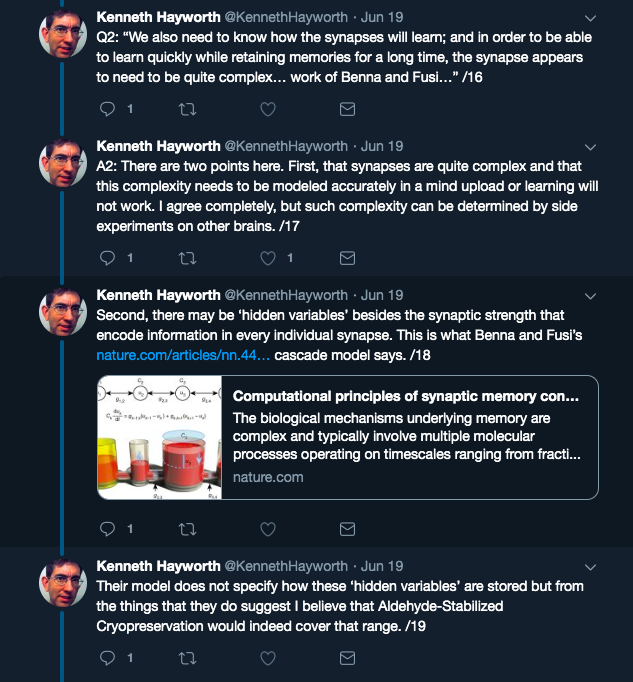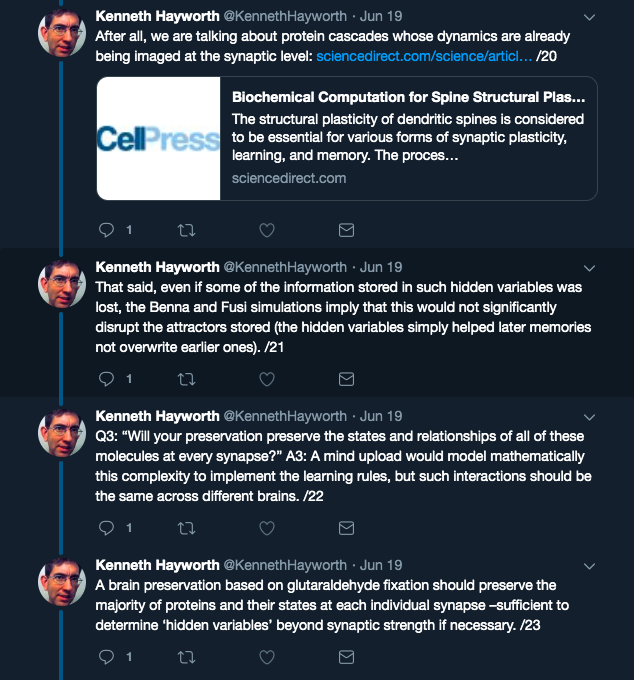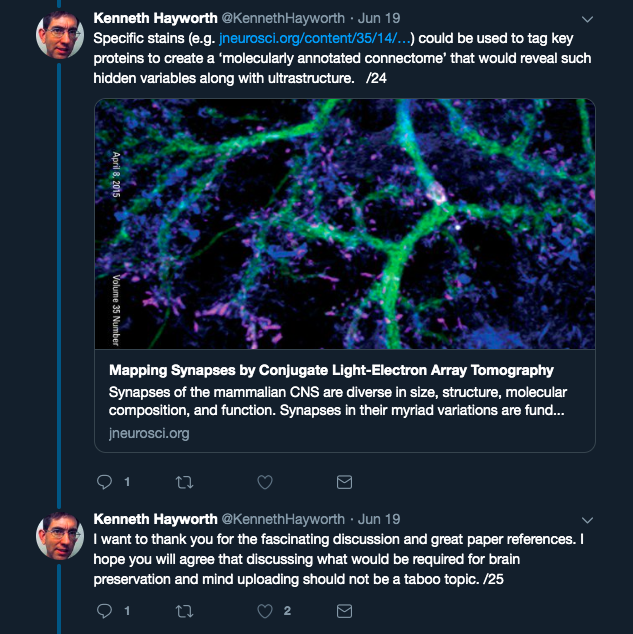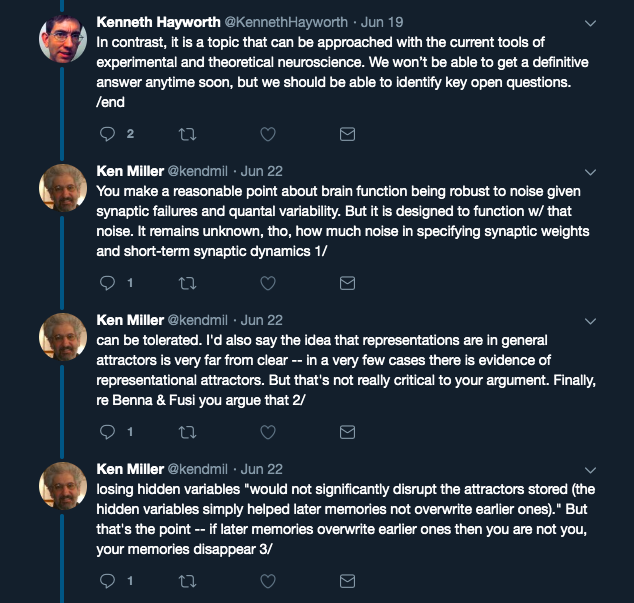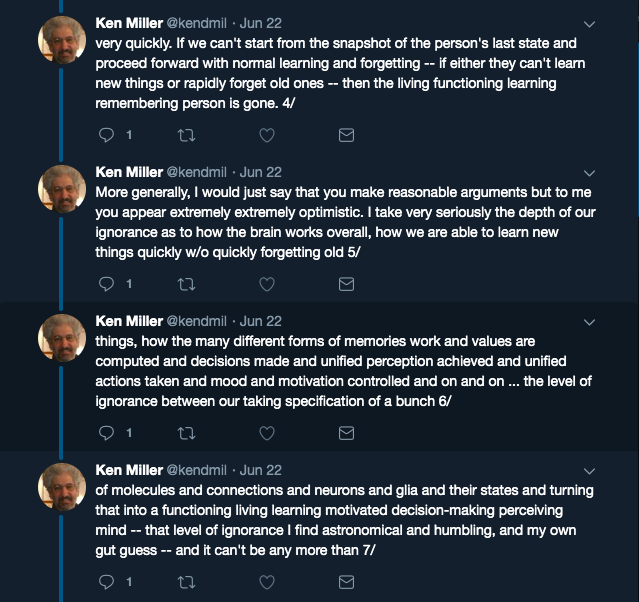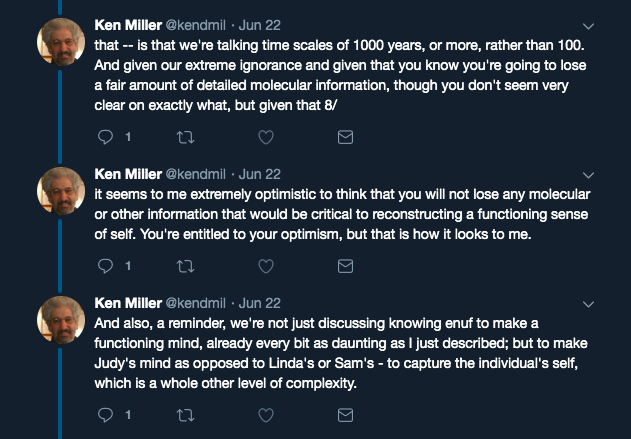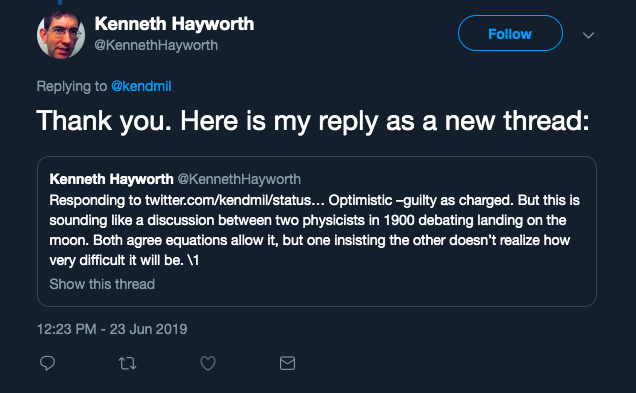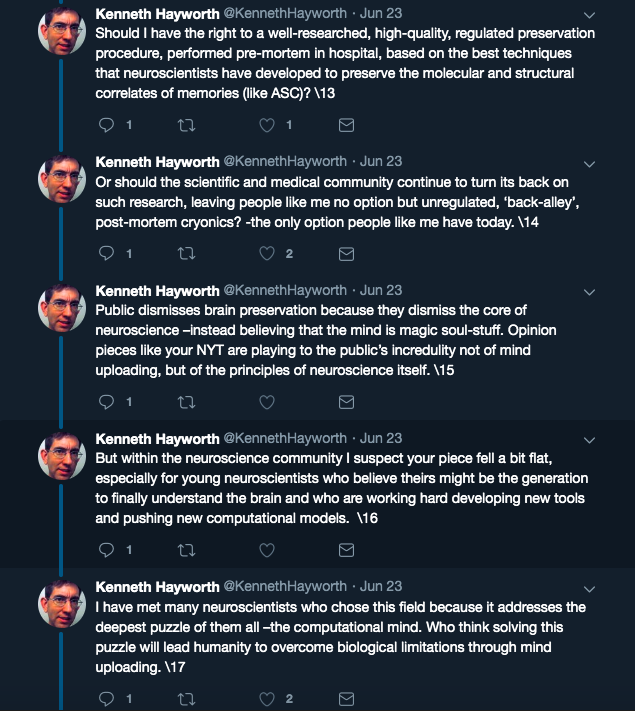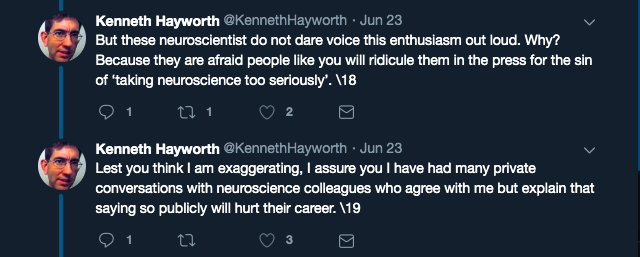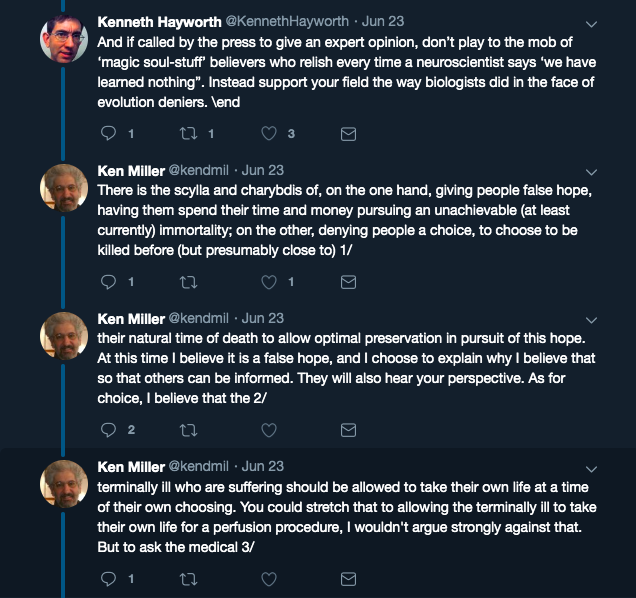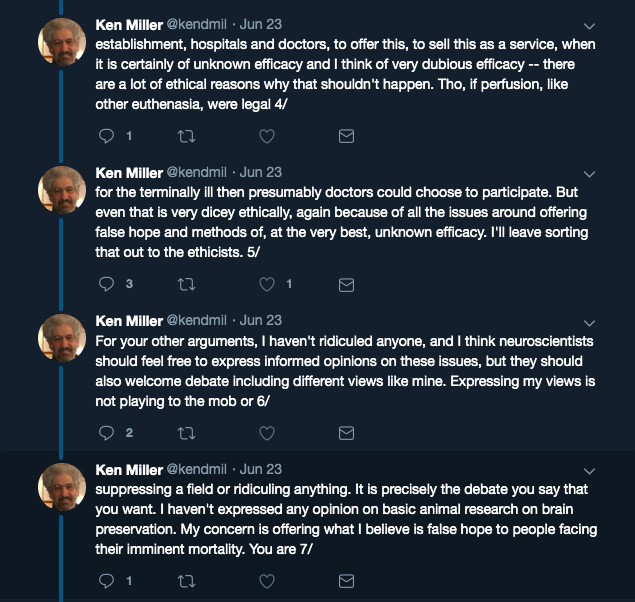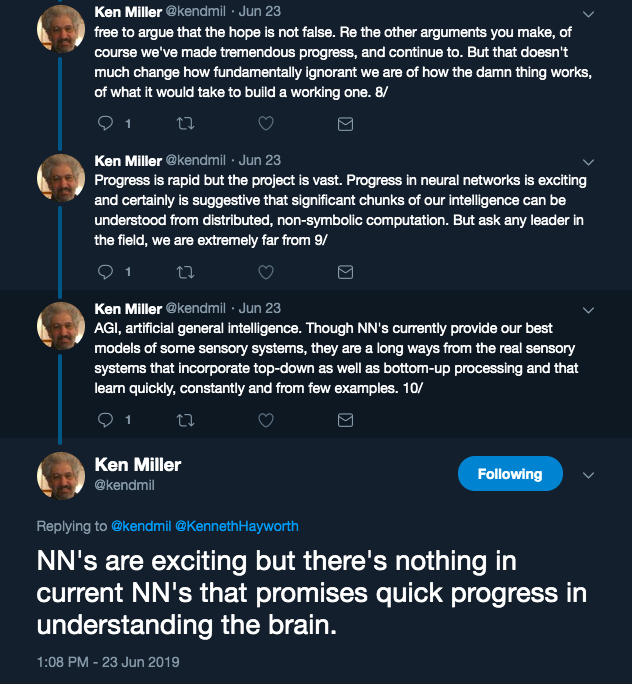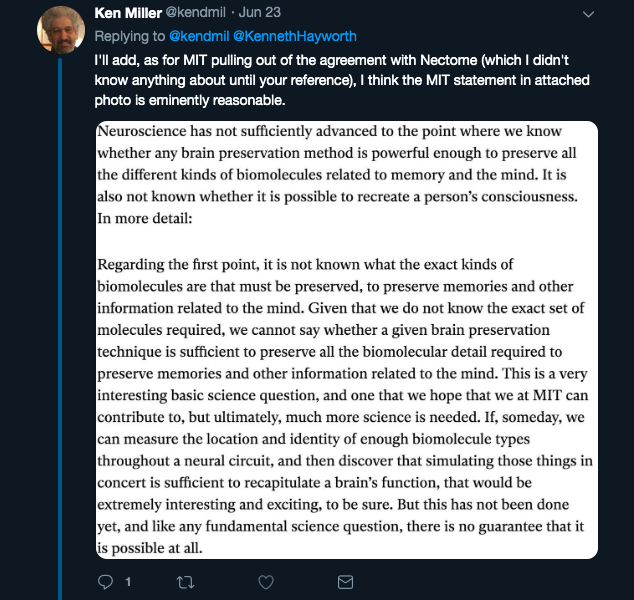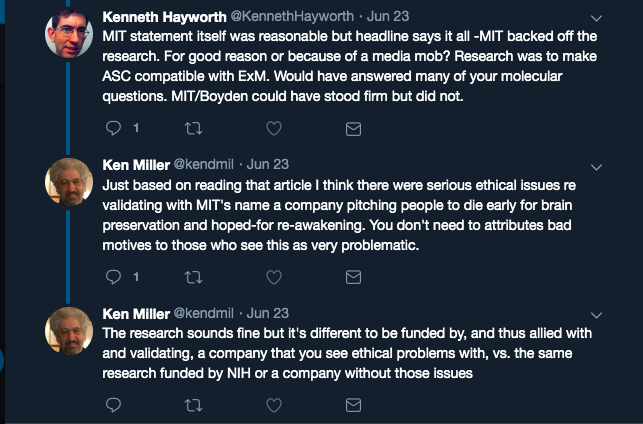The cryopreservation debate
- 2 minsI spotted a long exchange between Ken Miller and Kenneth Hayworth on twitter the other day. The discussion is apropos of an op-ed Ken wrote for the New York Times a few years back in which he argues that cryopreserving your brain is probably a waste of time. Hayworth takes the more optimistic view that it might one day be possible to reconstruct the memories and/or mind of a cryopreserved brain, albeit in a distant future where neuroscience has more or less been solved.
In my experience, it’s pretty rare to see serious neuroscientists really engage with subjects like this in earnest. Ken Miller is definitely a serious neuroscientist - he and his group have made a lot of important theoretical contributions to the field, and a few of his papers were really influential on my thinking during grad school. I wasn’t familiar with Kenneth Hayworth before spotting this. He’s a scientist at Janelia and the president of the Brain Preservation Foundation, a group that advocates for the development of brain preservation techniques and has a number of big names affiliated with it.
I went to the trouble of screencapping the thread because the formatting gets a little wonky in places - see below.
My TL;DR - Hayworth argues we can probably preserve brains in a way that would make it at least theoretically possible to read out the numbers/positions/configurations of many of the large molecules that we think are important for the information processing capabilities of the brain. Whether or not future humans could read out this information (using a yet-uninvented technology) and reinstantiate a person’s memories or consciousness is very difficult to say - a lot of it depends on people’s intuitions on what level of detail is required to simulate a brain.
One thing I’m struck by here is the implication that if we preserve our brains now, future generations might one day see fit to revive us and thus give us a second chance at life. My gut reaction to this is that it sounds extremely optimistic about how altruistic people in the future will be toward dead generations. If the attitude of the currently living population toward yet-unborn generations is any kind of indicator, it seems likely that people of the future will give very few fucks about spending any effort to help those who are already dead. But I suppose it can’t hurt to be hopeful.
Anyway, enjoy!
